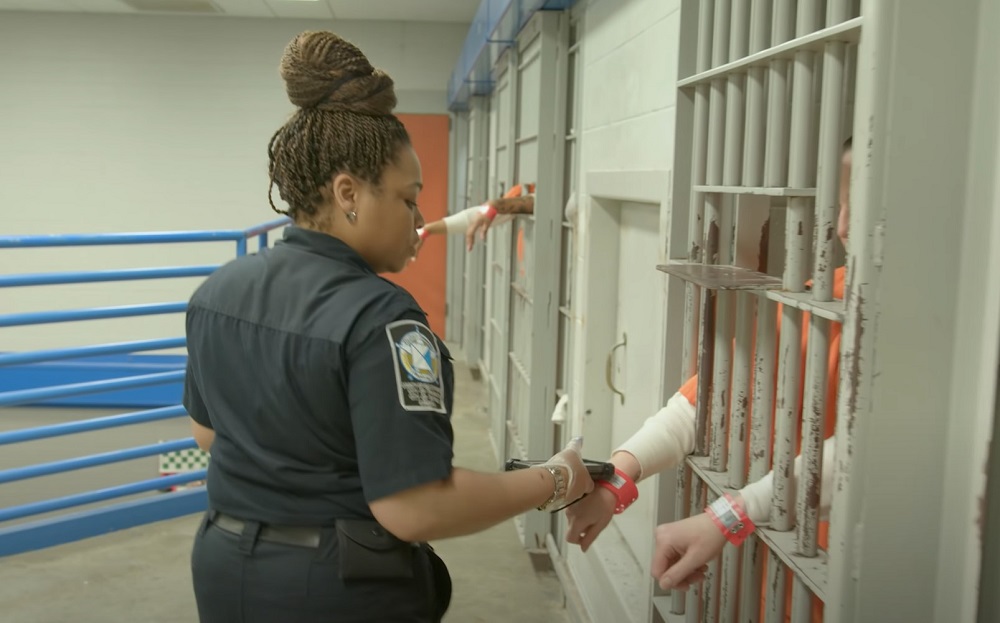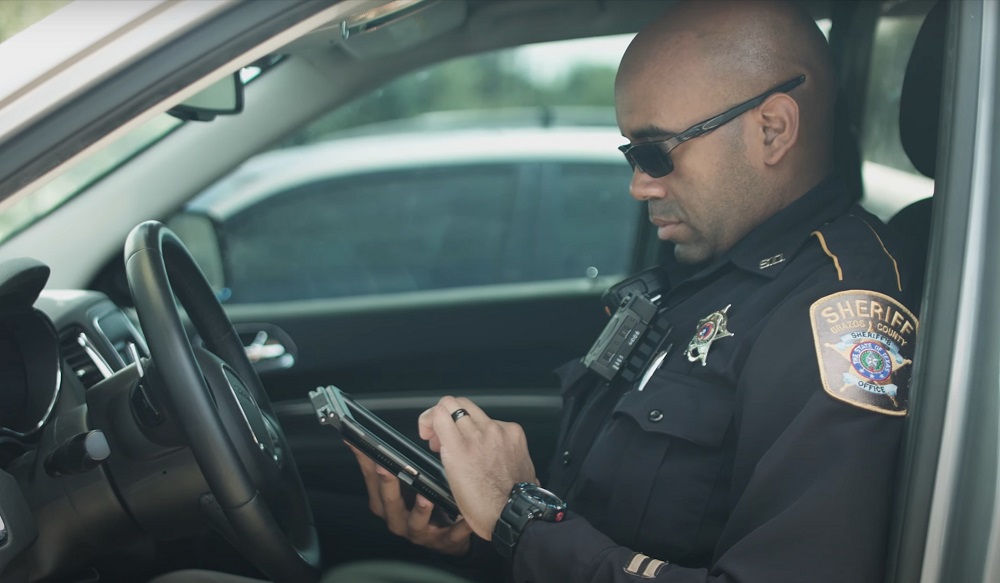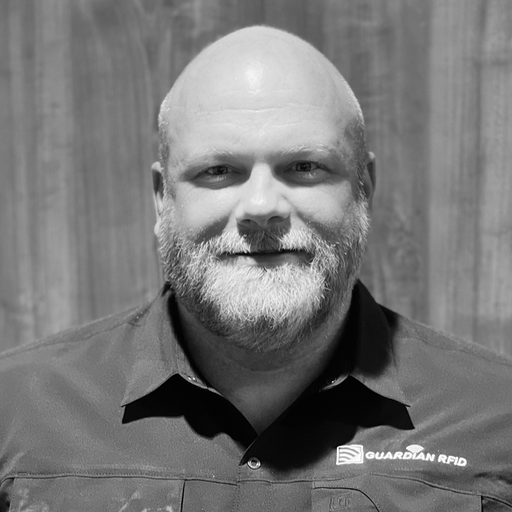How to Carry Yourself in Corrections
After learning a new lesson, have you ever thought “Well, that would’ve been nice to know earlier”? We’ve all had moments where we wished we’d known something sooner—moments that could have made our jobs easier or more effective. This is especially true for correctional officers navigating the complexities of their roles.
Chris Riedmueller, GUARDIAN RFID Product Trainer and a 14-year veteran in corrections, understands this well. Whether you're a seasoned professional looking for a timely reminder or a “heads up” for new boots, he offers insights drawn from his own experiences to help you avoid common pitfalls and enhance your effectiveness in the field.
In this blog, Chris reflects on the invaluable lessons he's learned throughout his career, including those he wishes he'd known when he first started as a Juvenile Detention Officer, so you don’t have to learn the hard way.
Does Appearance Matter?
Absolutely. While you may initially think that appearance doesn’t matter much when working in corrections, that narrative is wrong. To be fair, if you’re working with inmates, why would they care how you dress? Your team will typically require BDU pants and either a BDU shirt or a polo to show professionalism. But who cares about looking professional in front of inmates? Well, you should.
We’re going to let you in on a little secret: if you dress like a slob, you will be treated like a slob. If you come to work with stains on your pants, wrinkles on your shirt, and uncombed hair, you’re giving off non-verbal cues that you don’t care about your job. Your supervisor sees it. Your coworkers see it. And most importantly, the inmates see it. Lazily presenting yourself makes you an easy target for inmates who may try to exploit your attitude and manipulate you into neglecting your duties, such as skipping your rounds.
On the other hand, arriving at work in a clean, pressed uniform demonstrates that you've invested time and effort into looking straight-laced. This attention to detail can lead to greater respect from inmates, as they perceive you as someone who means business. Ensure your uniform is the sharpest on your shift, your boots are polished, and you adhere to your department’s grooming standards. Your daily appearance will be remembered when you put in for that promotion, not just the suit you wore to the interview.
Does Attitude Matter?
Without a doubt, your attitude matters. If your demeanor is not in check at all times within the confines of a correctional facility, you may face a long uphill battle. Supervisors will scrutinize your behavior, coworkers may start losing faith in you, and inmates might target you in retaliation for your words and actions. The nature of corrections demands a high level of resilience and composure, even in the face of adversity.
Corrections is a TOUGH profession, but it is precisely in these challenging environments that we are called to rise to greatness. Are we expected to maintain our composure and professionalism, even when the tensions are high? Yes, our reactions to violent situations must be measured and controlled. Are we always on heightened alert? Yes, but this should never compromise our attitude. Instead, our demeanor should reflect the steady, principled behavior we wish to see in others.
As corrections professionals, it is our duty to embody the conduct we expect from those in our care. Carry yourself with unwavering pride and steadiness, and let your actions and attitude set a standard of excellence and integrity. Your behavior can profoundly influence the environment, shaping both the immediate atmosphere and the long-term culture of the facility.

Does Mental State Matter?
It’s no secret that working in corrections can be a deeply emotionally impactful job (which is why correctional officers have a skyrocket-high rate of PTSD). Sometimes it may even feel like your mental state is on a rollercoaster ride, up and down and up and down and up and down. So, taking care of your mental health is arguably the most important part of working in corrections. No matter the trauma you face, you are trained to remain calm and make reasoned decisions, despite the chaos surrounding you.
We suffer in silence. Some of us deal with the daily stress better than others. Some of us can’t cope at all. Some of us have seen some horrendous things that people should never witness and things we will never forget. Some of us have even had to do things that are the things nightmares are made of.
Lt. Bryan Hughes
Typically, there’s an unwritten rule in the field of corrections: never show emotion, as it may be perceived as a sign of weakness. Unfortunately, being emotionally affected by the job is often misinterpreted by the workplace culture as evidence of being unreliable in a crisis and, ultimately, unfit for the role. This damaging stigma fosters a fear of rejection from peers or, even worse, the fear of losing one’s job if deemed unfit for duty.
Suppressing emotions, especially after experiencing trauma, can severely distort one's inner world. The weight of unresolved feelings can lead to psychological dissociation, where officers may disconnect from their true emotions and begin to evade reality. This emotional suppression not only affects individual well-being but can also undermine professional effectiveness and personal resilience. It’s crucial for the culture within correctional facilities to recognize and address these challenges, supporting officers in managing their emotional health while maintaining their vital roles.
Dissociation involves staff disconnecting themselves from their true emotions and thoughts about a disturbing event - blocking them out of their awareness. Some cope by shutting events out of their awareness, 'compartmentalizing' them. This activity of putting memories of unpleasant events (and the associated emotions) in 'compartments' amounts to engaging in dissociation.
Caterina Spinaris, Ph.D, LPCDesert Waters Correctional Outreach
Understanding mental health is a beast of a task, but the most difficult hurdle to overcome is the very first step: acknowledging that a problem exists. That’s why corrections professionals need to be aware of their own mental health, be open and honest about mental health struggles, and help others see a light at the end of the tunnel. Building open-door relationships between a team and simply asking “how things are going” can be all it takes to save the life of a colleague suffering in silence.

Does Communication Matter?
Every conversation you have as a corrections professional holds significance. Whether it's during a shift briefing, the handover at post changeover, or even a brief five-second interaction with an inmate, each exchange plays an important role in your daily responsibilities. Active communication, including active listening, is highly encouraged with both staff members and inmates for a reason. In this demanding job, daily tasks can sometimes feel repetitive or monotonous. By engaging intentionally with your team and the inmates, your daily tasks whill feel less dull.
In fact, other officers (and even inmates!) may become more familiar with your daily tasks than your own family. Building and maintaining these peer relationships is crucial, especially since they can provide invaluable support when the job takes an emotional toll. These interactions not only help break the monotony but also foster a supportive network that help pick you up and put you back together.
'Active listening' is an area I personally struggle with, so I purposefully focus on listening when I am around peers and inmates. You may spend five seconds with every inmate on your block during every round. It may seem like a mundane task, but those five seconds are important to the inmate. If you dismiss their conversation or disrespect them, they will remember. I am not saying that you have to cross barriers or become close with the inmates, but actively listen to them and ensure that you handle their requests appropriately.
Chris RiedmuellerProduct Trainer GUARDIAN RFID
Do Off Duty Actions Still Matter?
From the second you enter the public eye while in uniform, you represent your agency. Even when you take off your uniform and wear your daily clothes, you are still remembered as someone who works in your correctional facility and will still be expected to represent your team. The public identifies you as a hand-selected representative of the sheriff, chief, or warden and holds your agency head accountable for your actions. It may seem a bit harsh knowing that you will always be held to high expectations, but it actually isn’t that far off how you would represent yourself daily anyway.
For example, when you go to the grocery store where you’re confident you won’t run into anyone you know, you will still be respectful to everyone else in the store. You hopefully wouldn’t run in the doors screaming and throwing around egg cartons just because you knew nobody would recognize you. The point is that regardless of where you go or what you do, if you have integrity, it shouldn’t be a problem representing your facility with and without your uniform.
I made every effort to make no stops on the way to or from work while in uniform. If I knew I had to make a stop, I would bring a change of clothes and change before I left the facility. As a supervisor, I had the unfortunate task of having to apologize to a member of the public on multiple occasions for the actions of my fellow team members for loudly cursing in a convenience store or demanding discounts at a restaurant. Personally, I treated every interaction with the public as if my sheriff was standing right behind me. That genuine behavior brought relatively few sour grapes throughout my career. Was it always easy to take the high road, especially when getting yelled at for something that I didn’t do? No, it wasn’t easy, but I could always go back to the sheriff and say, 'Boss, I handled it with respect.' Today, more than ever, we are placed in the public eye. Stay true to your values and morals at all times, and it will be hard for someone to misrepresent you.
Chris RiedmuellerProduct Trainer GUARDIAN RFID

Beyond maintaining respectful and professional behavior off duty, some officers may opt to further serve their community during their spare time. Depending on your community's size, you might find a range of opportunities to contribute. Whether it's getting involved with your church, joining a civic organization, coaching or umpiring in youth sports leagues, or volunteering with the Boys and Girls Club, there are many ways to make a positive impact.
You might think, “I already spend all my working hours serving the community, why should I do more?” That’s a completely thought. However, engaging with the community while off duty can be beneficial, especially if you're aiming to advance your career. When moving up the ladder in any field of law enforcement, building connections within the community can be extremely valuable. Active community involvement often enhances opportunities, particularly in roles focused on community policing. While mentorship opportunities can be challenging, they can also be highly rewarding.
Another reason to serve off-duty is that it can recharge your batteries, so to speak. Corrections can be an exhausting job, both mentally and physically. Serving your community is a way that allows you to see and feel the difference you are making. Whether it’s seeing a kid smile because they’ve won their first soccer game or mowing your elderly neighbor’s yard and seeing them beam with pride, that immediate satisfaction can help you center yourself.
Correctional officers come to this profession for a variety of reasons: some are seeking a path into law enforcement, others are transitioning from military careers, some are in search of a new direction, and some stumble upon it by chance. Whatever the reason may be, they all ended up being officers and will learn that their actions have significant consequences both within and beyond the prison walls. Despite often being undervalued, those who work in corrections face unique and formidable challenges with dedication. Those who work in corrections are undervalued more often than not, but we at GUARDIAN RFID applaud these unsung heroes and are here to help hold the line, steady and taught, for many years to come. As always, get your team home safe.

